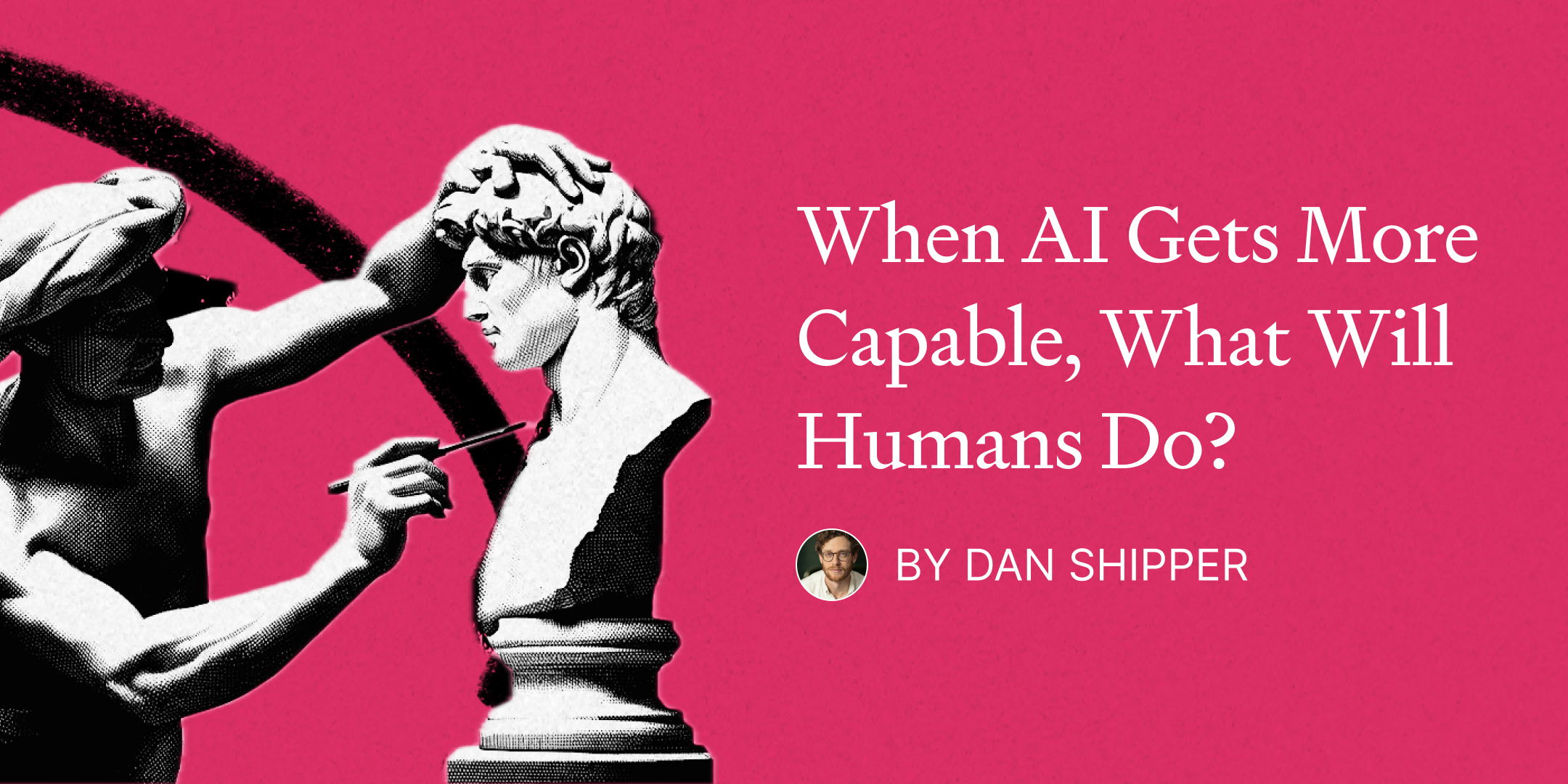When AI Gets More Capable, What Will Humans Do?

🌈 Abstract
The article discusses the concept of "capability blindness" - the tendency to underestimate the rapid progress of technology, using the example of language models like GPT-4 and Claude. It explores how AI is transforming the creative process, and what skills and strategies will become valuable for creators and brands in this new landscape.
🙋 Q&A
[01] Capability Blindness
1. What is capability blindness, and how does it relate to the progress of language models? Capability blindness refers to the common mistake of underestimating the rapid improvements in technological capabilities, such as the progress of language models like GPT-4 and Claude. The author argues that we often fail to notice these step changes in capabilities because we are jaded by our past experiences.
2. What example does the author provide to illustrate capability blindness? The author cites the example of Facebook's revenue and profitability growth over the past decade, which many observers, including columnist Ross Douthat, had doubted would be possible in 2012. This shows how quickly technology can evolve and defy initial expectations.
3. Why is it important to avoid capability blindness when it comes to AI? The author emphasizes that capability blindness is particularly important to avoid with AI, as some tasks that AI struggles with today may become much easier in the near future, similar to the rapid improvements seen in language models.
[02] The Changing Landscape of Creative Work
1. How does the author describe the changing nature of creative work in the age of AI? The author suggests that the creative process will shift from a "sculpting" model, where the creator directly shapes the work, to a "gardening" model, where the creator sets the conditions for the AI to generate the creative output. The author notes that while direct human input will still be valuable, the role of the creator will become more about managing and refining the AI's work.
2. What skills and strategies does the author identify as becoming more valuable for creators and brands in this new landscape? The author highlights several key skills and strategies that will become more valuable:
- Uncovering new facts and insights, as writing will become more of a commodity
- Producing original, long-form thinking that goes beyond summarizing existing work
- Building and maintaining an audience, as audience acquisition and distribution will be crucial
- Consistently publishing content to establish mindshare and brand power
3. How does the author envision the future of creative work in this AI-driven landscape? The author suggests that while direct human creative input will still be valuable, the role of the creator will shift more towards "model management" - setting the conditions for the AI to generate creative output, and then selectively refining and modifying the AI's work as needed.